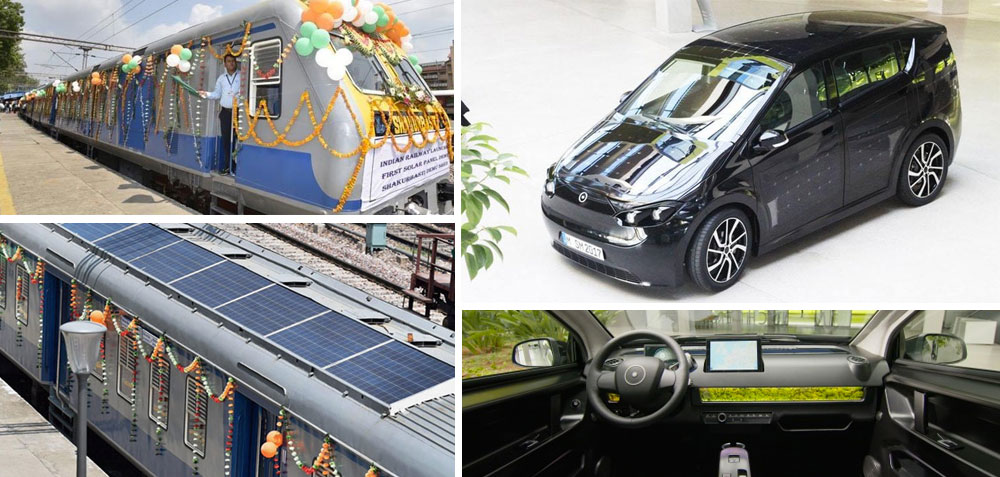
Chlorine chemistry in solar panels helps power electric car & train
A new electric car will charge up using solar panels – made using chlorine chemistry – in its bodywork, reports the Shropshire Star (August 1). To be manufactured by a German start-up, Sono Motors, the car reportedly features nine square yards of solar panels and can travel nearly 20 miles on solar energy alone. The car, named Sion, has a potential range of 155 miles, and is targeted for production in the second quarter of 2019, says the newspaper. The solar panels are protected from the elements by a layer of polycarbonate – another product of chlorine chemistry – according to the Shropshire Star; “not only can the panels provide charge for the Sion’s electric motor, which can take the car up to 87 mph, excess energy can also be used to charge other electric vehicles.”
In a related development, India has reportedly launched its first solar-powered local train. A July 25 LinkedIn post says that the Indian Railways local train “has a battery bank facility to ensure sufficient power even if there is no sunlight.”
The power needs of the train’s coaches, including lights, fans and information display systems, will be met by energy produced by solar panels on top of the diesel electric multiple unit (DEMU) train, according to local media. The train was launched at the Safdarjung railway station in New Delhi.
